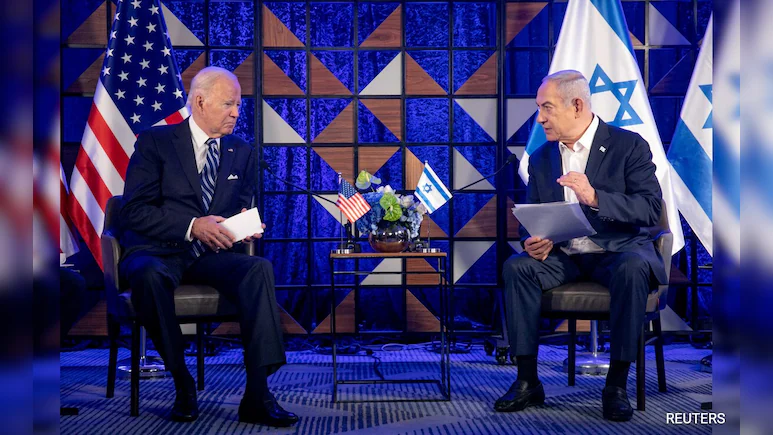The International Criminal Court (ICC) has once again ignited a global firestorm, this time by issuing arrest warrants for Israeli Prime Minister Benjamin Netanyahu and former defense minister Yoav Gallant. The charges? Crimes against humanity and war crimes. The United States, led by President Joe Biden, has dismissed the move as “outrageous,” emphasizing unwavering support for Israel’s security.

Biden’s Firm Stance on Israel
President Biden wasted no time in condemning the ICC’s actions. “There is no equivalence—none—between Israel and Hamas,” he declared, drawing a clear line between a nation defending its security and a terrorist organization like Hamas. Biden reaffirmed the United States’ commitment to standing with Israel against what he termed baseless allegations.
The White House further criticized the ICC’s decision, citing “process errors” and asserting that the court lacks jurisdiction over the matter. Notably, both the United States and Israel are not members of the ICC and have consistently rejected its authority.
The ICC’s Allegations and the Fallout
The ICC claims that Netanyahu and Gallant committed crimes from October 8, 2023, to May 20, 2024, amidst the Israeli-Palestinian conflict. A parallel warrant targets Mohammed Deif, the Hamas military chief whom Israel claims was killed in an airstrike earlier this year. Hamas has not confirmed his death, and the ICC’s warrant further complicates the narrative.
Incoming U.S. National Security Advisor Mike Waltz, under President-elect Donald Trump, echoed the Biden administration’s sentiments. Waltz labeled the ICC as lacking credibility and pledged a “strong response to the antisemitic bias” of both the ICC and the UN. His remarks reflect broader Republican outrage, with some calling for U.S. sanctions against the ICC.
A Polarized Global Response
The ICC’s move has divided international opinion. Critics argue that the court overstepped its boundaries, targeting leaders of a nation defending itself against terrorism. Supporters of the ICC view it as a step toward accountability in one of the world’s most protracted conflicts.
Israel’s rejection of the ICC’s jurisdiction aligns with the United States’ position. Both nations argue that the ICC’s actions threaten to politicize international law, undermining its credibility as a neutral arbiter.
LifeBahn’s Perspective: Justice or Politics?
The ICC’s decision raises profound questions about the role of international institutions in addressing global conflicts. Is the ICC advancing justice, or is it wading into political waters? At LifeBahn, we believe in accountability, but it must be balanced with fairness and respect for sovereignty. The path to lasting peace requires collaboration, not divisive rhetoric.
Join the Conversation
What’s your perspective on the ICC’s actions against Israeli leaders? Should international courts intervene in such conflicts, or should national sovereignty take precedence? Share your thoughts with us at LifeBahn.
Try LifeBahn’s “a lifetime of education in 52 weeks” or GREAT@ (Globally Relevant Education And Training) Academy, helping create a prosperous future for you and your loved ones.
Autobahn — Road for Automobiles.
LifeBahn — Road for life. Built on the simple principle: While competition is a good way to succeed for a FEW, collaboration is a BETTER way to succeed for MANY.






